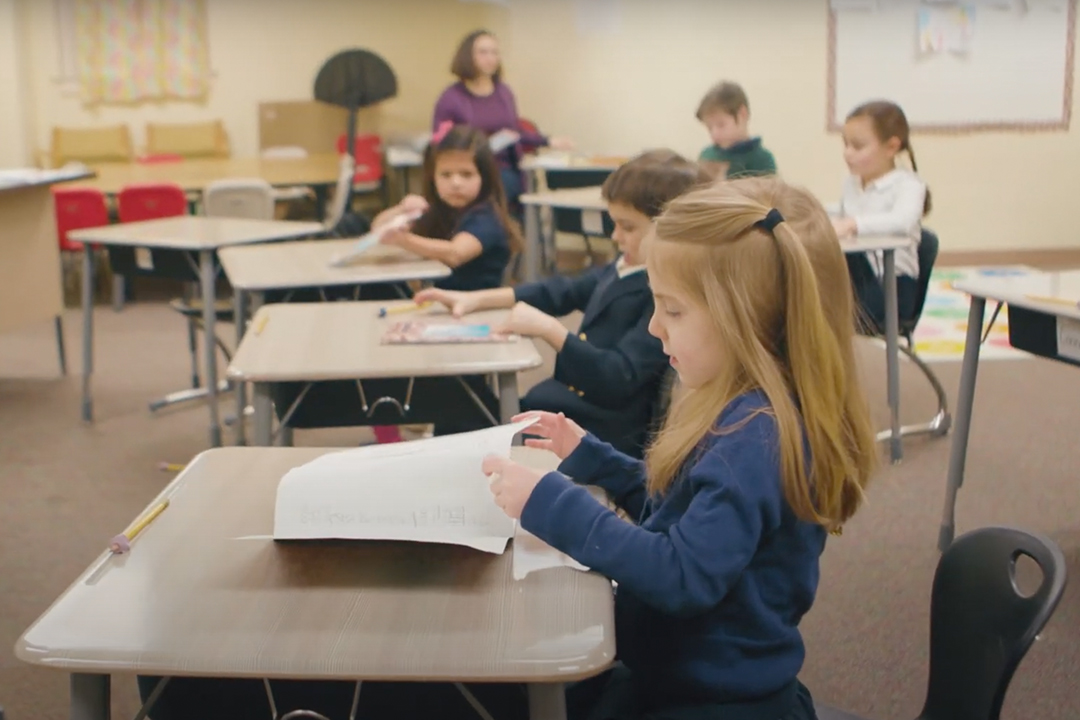Kindergarten-8th Grade

If you look through the pages of history, you’ll find a very different approach to education than the one most commonly subscribed to today. For most of human history, education meant learning how to live, not just how to pass a test or how to get a job. We see this assumption when Jesus comments that of course a student will look like his teacher— yet today students study with a teacher without any expectation that their life will begin to reflect that of their teacher.
This is important for discipleship, because Jesus is the teacher.
The Classical and Christian approach to education is a reclaiming of this historical approach and a restoration of Jesus as the primary teacher for how to live a human life. We pull from the wisdom of the ancients, the curriculum of the Middle Ages, and apply to that our modern understanding of child development. Combining the three, we end up with an education that leads to “the confidence and good conscience that come from acting in accordance with one’s knowledge of the truth.”
The Trivium
The Trivium, the curriculum of the Middle Ages, consists of Grammar, Logic (Dialectic), and Rhetoric. Mapping these onto child development, we end up with a Grammar Stage, a Logic Stage, and a Rhetoric Stage.
The Grammar Stage
The Grammar Stage (K-6) is all about learning the basics. Young kids love to learn, to memorize, to sing songs the words of which they often don’t yet understand. In this stage of development, God made them to trust authority figures wholeheartedly— since they know nothing, it’s really the only way for them to start!
The Logic Stage
The Logic Stage (7-9) marks the shift from trusting authority figures implicitly to instead beginning to question these assumptions. As any parent knows, middle schoolers love to argue! And we should love that God has made them this way, because it’s a key part of them developing into fully-functioning adults with their own views and opinions. To take advantage of that, in our Logic stage we teach them Logic, to argue well, and regularly structure discussions in the form of debate.
The Rhetoric Stage
The Rhetoric Stage (10-12) emphasizes quality of communication, both written and verbal. In this too we see God’s wisdom, for High Schoolers are always trying on different identities— the prevalence of stereotypes in high school movies (am I a nerd, a jock, a goth, a drama kid, etc.) attests to this! We believe that God gives young adults this time to explore their own identity in a safe context before being launched out into the world. As such, we teach them to express themselves well, in the arts, in strong writing, and in speech. Not only are these the soft skills that set them up to excel in the workplace and in their relationships, the ability to understand and express your own self is an important part of learning to find your identity in Christ.
